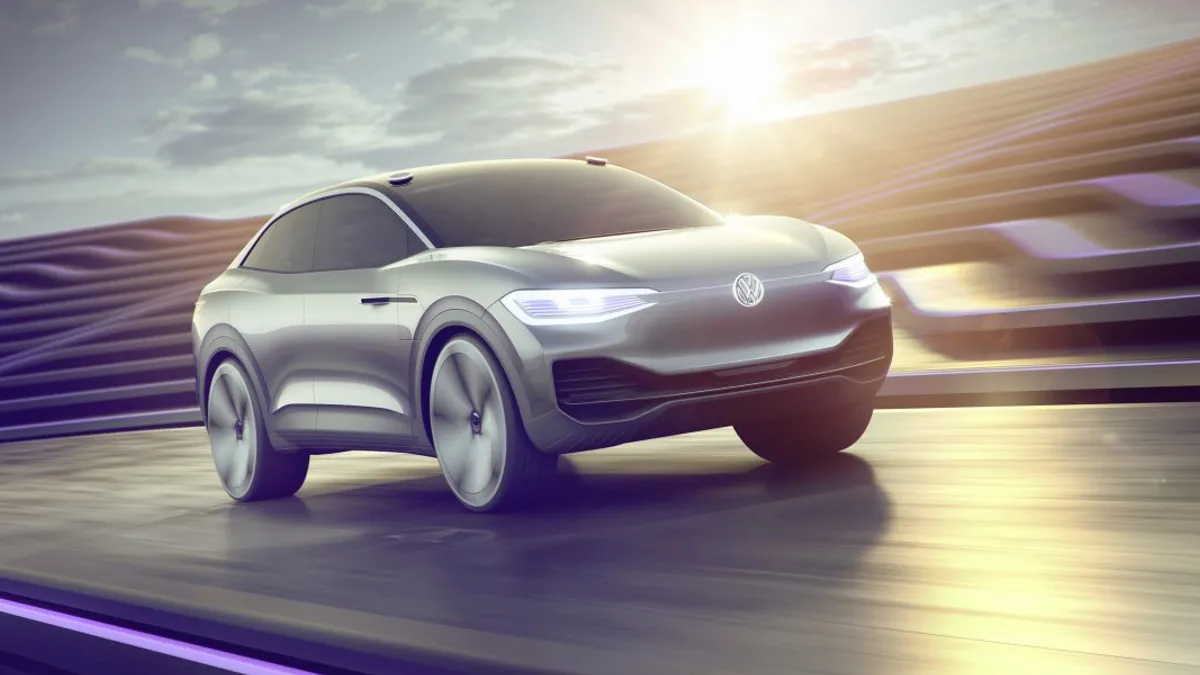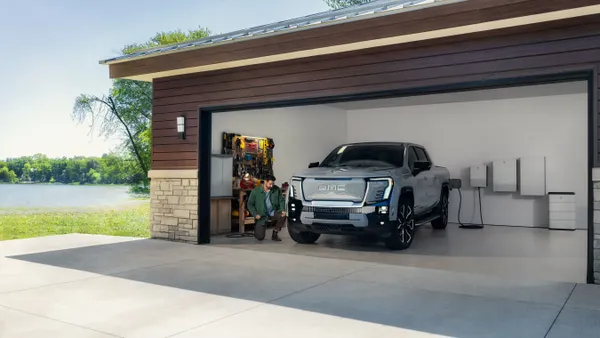Dive Brief:
- Automakers Ford and Volkswagen (VW) have signed a memorandum of understanding (MOU) as part of their new global alliance to explore collaborating on autonomous vehicles (AVs), mobility services and electric vehicles (EVs).
- The companies pledged to "harness our collective resources, innovation capabilities and complementary market positions" in their alliance, which will begin with the pair making pickup trucks and commercial vans together. The companies will not take ownership stakes in each other under this alliance.
- “Over time, this alliance will help both companies create value and meet the needs of our customers and society,” Volkswagen CEO Herbert Diess said in a statement. “It will not only drive significant efficiencies and help both companies improve their fitness, but also gives us the opportunity to collaborate on shaping the next era of mobility.”
Dive Insight:
This global partnership makes a lot of sense for the two companies, which will share expertise and resources on all manner of car-making business, including some cutting-edge technologies like AVs and EVs. Already, both Ford and VW have looked to innovate, with Ford partnering to test AVs in cities like Washington, DC and pledging to deploy cellular vehicle-to-everything (C-V2X) technology in all new U.S. vehicle models starting in 2022. Ford also made waves last year with its acquisition of dockless scooter company Spin, which saw the company further expand its mobility portfolio.
Meanwhile, VW has made similar moves. The company partnered with Intel to offer an autonomous taxi service in Israel and plans to start building EVs in the United States by 2023. Its Electrify America subsidiary has also made strides toward educating Americans about the benefits of EVs, with its funding coming from the settlement over VW’s emissions cheating scandal. "Over time, this alliance will help both companies create value and meet the needs of our customers and society," Ford CEO Jim Hackett said in a statement. “It will not only drive significant efficiencies and help both companies improve their fitness, but also gives us the opportunity to collaborate on shaping the next era of mobility.”
As automakers and startups race to develop AVs and electrify their cars, a partnership such as this between two giants in the industry could help the technology make significant strides forward. Polls continue to show a lack of public acceptance of AVs, but this alliance may encourage the pair to follow the advice of U.S. Transportation Secretary Elaine Chao and “step up” to educate the public more and accelerate the development of safe technology.











